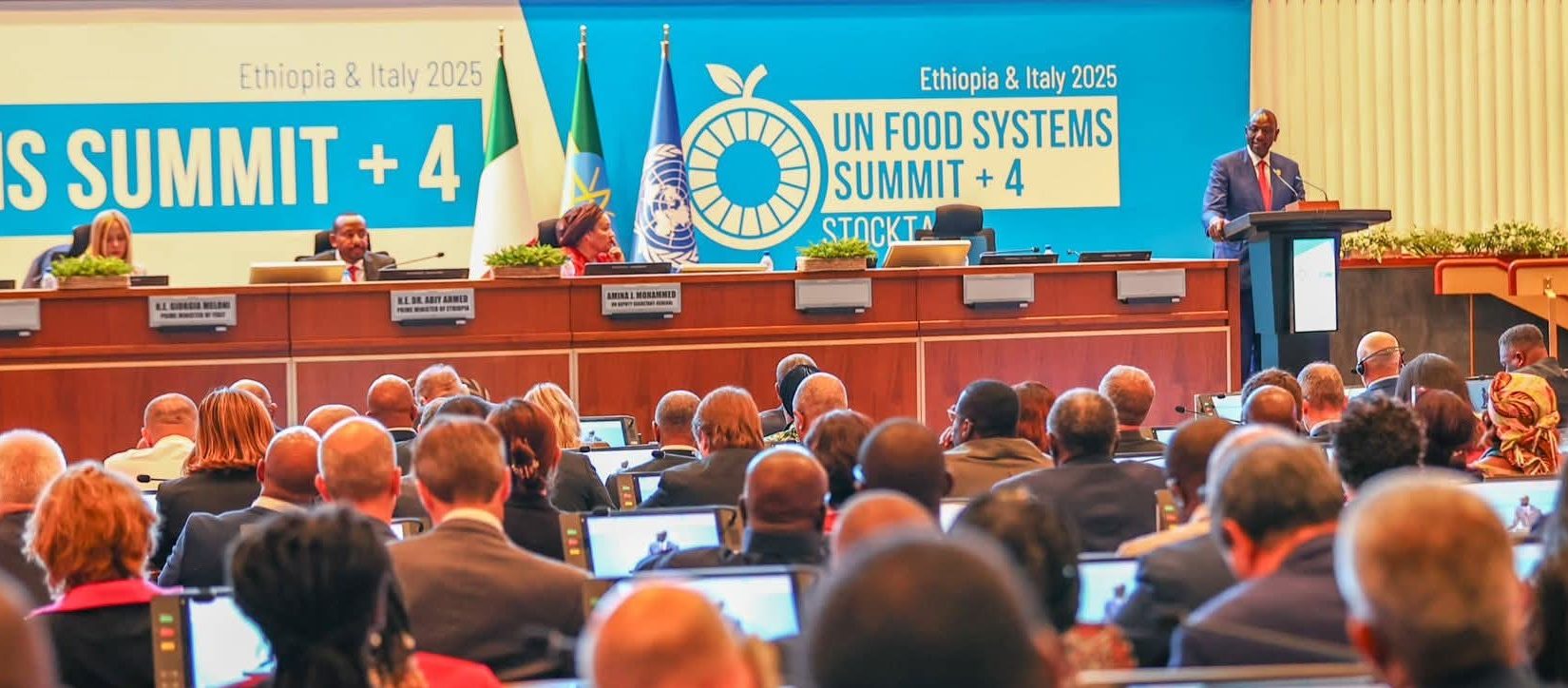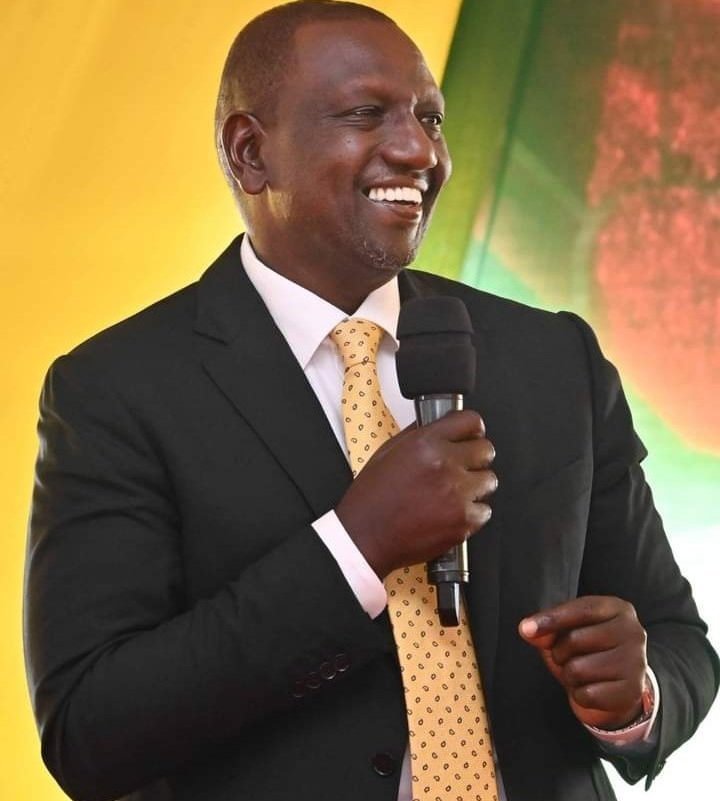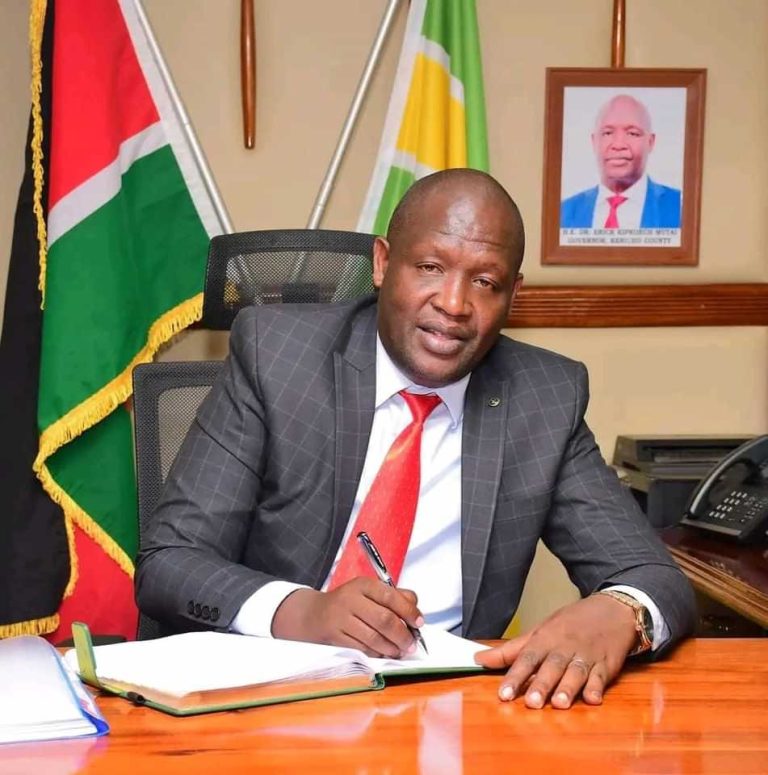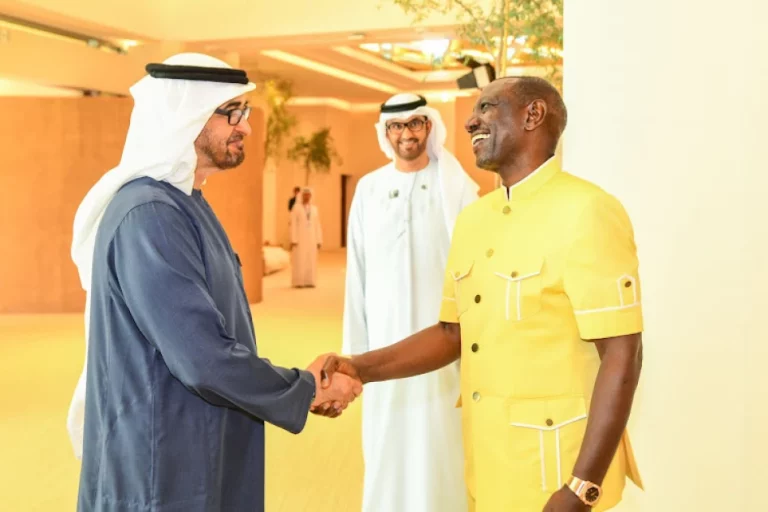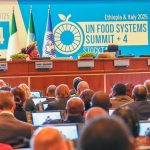Addis Ababa, Ethiopia
President William Ruto has called on world leaders to adopt bold and practical measures to accelerate efforts toward ending global hunger and improving nutrition.
Speaking at the Second United Nations Food Systems Stocktaking Summit in Addis Ababa, Ethiopia, the Kenyan Head of State stressed the urgency of transforming global food systems to meet the nutritional needs of all people, especially in developing nations.

Progress Not Enough
While acknowledging that significant strides have been made in producing safer, more nutritious, and sufficient food globally, President Ruto emphasized that more must be done to ensure that this progress benefits everyone.
“We have made meaningful progress in feeding the world,” he said. “But to truly make this success global, we must intensify our efforts.”
He noted that despite the global food system contributing between 10% and 12% of the world’s Gross Domestic Product—equivalent to about $8 trillion to $10 trillion annually—many developing countries continue to miss out on its benefits.
Hunger and Diet-Related Diseases a Dual Threat
President Ruto painted a stark picture of the current state of global nutrition, noting that hunger, malnutrition, and under-nutrition remain a daily struggle for millions of people.
At the same time, the world is facing an alarming rise in obesity and diet-related illnesses that are now threatening to reverse development gains in many regions.
“Starvation and poor nutrition are daily realities for far too many,” Ruto said. “At the same time, lifestyle-related health conditions like obesity are increasing fast and harming both people and economies.”
Global Leaders Join Hands
The summit brought together key global figures, including
- Ethiopia’s Prime Minister Abiy Ahmed,
- Italy’s Prime Minister Giorgia Meloni,
- Somalia’s President Hassan Sheikh Mohamud,
- Comoros President Azali Assoumani,
- UN Deputy Secretary-General Amina Mohamed,
- African Union Commission Chairman Mahmoud Ali Youssouf.
These leaders convened to assess progress since the inaugural UN Food Systems Summit, held four years ago, which aimed to reshape global food value chains to align with the Sustainable Development Goals (SDGs).
Kenya’s Commitment to Sustainable Food Systems
Delivering Kenya’s national statement, President Ruto reaffirmed the country’s strong commitment to transforming its food systems to support long-term sustainability and growth.
He stressed the importance of financial support for smallholder farmers, agri-tech start-ups, and agricultural entrepreneurs.
To support this transformation, the President called for the development of tailored financial products and praised innovative platforms such as Kenya’s mobile money service M-PESA for offering scalable solutions in agricultural finance.
Stronger Partnerships Needed
President Ruto also advocated for stronger collaboration between the public and private sectors to unlock investment, scale up proven solutions, and deliver lasting impact.
“We must harness the full potential of both sectors to drive meaningful change in our food systems,” he said.
Embracing Innovation and Technology
The President further urged UN countries to embed food system strategies into national policy frameworks.
He called on governments to support academic and research institutions by investing in the infrastructure needed to drive innovation.
In particular, he emphasized the critical role of digital technology, artificial intelligence, and climate-smart agriculture in delivering sustainable solutions to food security challenges.
“We must significantly increase investment in digital tools and smart farming to ensure that nutritious food reaches every household,” President Ruto stated.
Bilateral Engagements
On the sidelines of the summit, President Ruto held bilateral talks with Italy’s Prime Minister Giorgia Meloni and Somalia’s President Hassan Sheikh Mohamud.
The discussions focused on deepening cooperation and addressing issues of mutual national interest.
Follow https://kenyaonline.xyz
